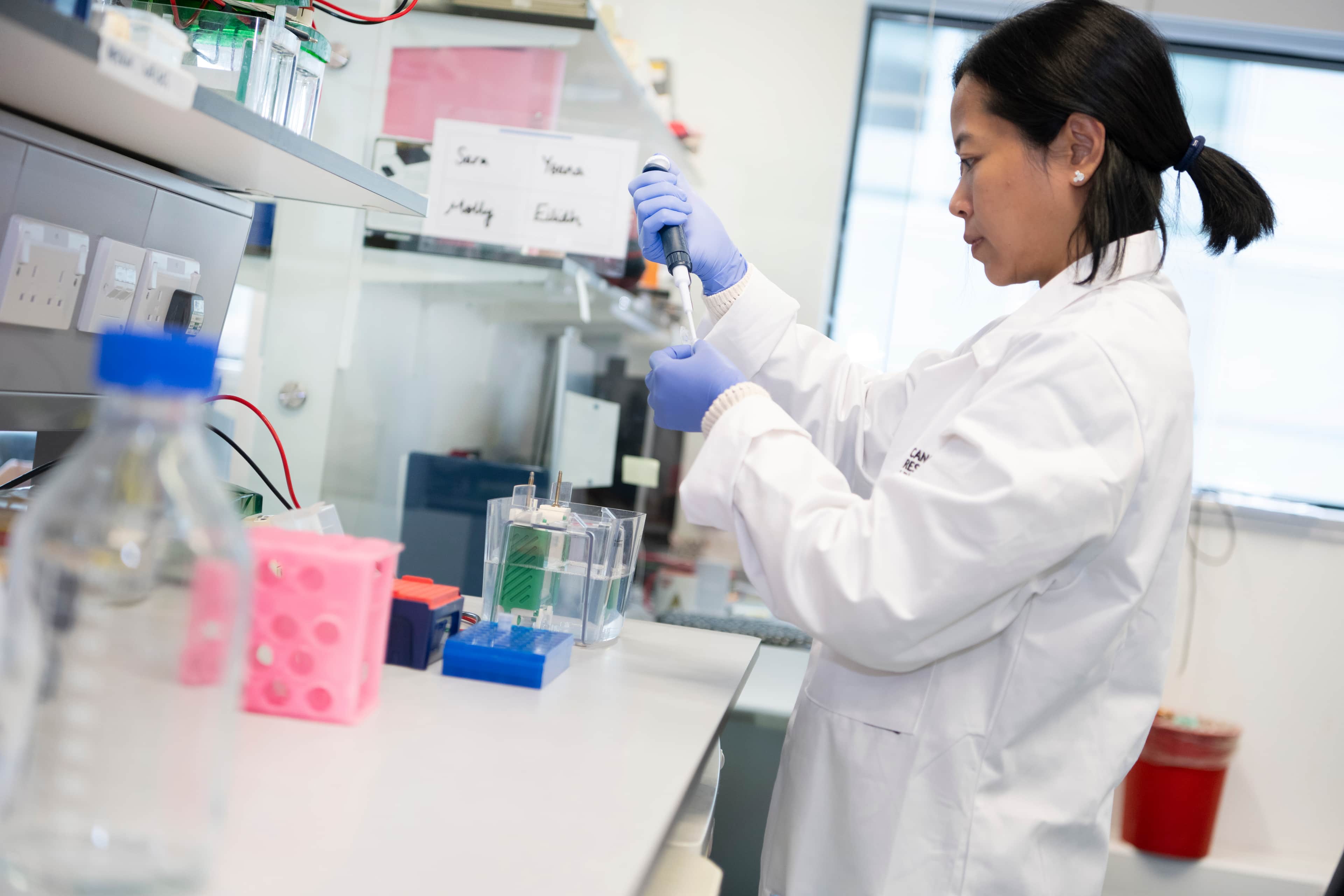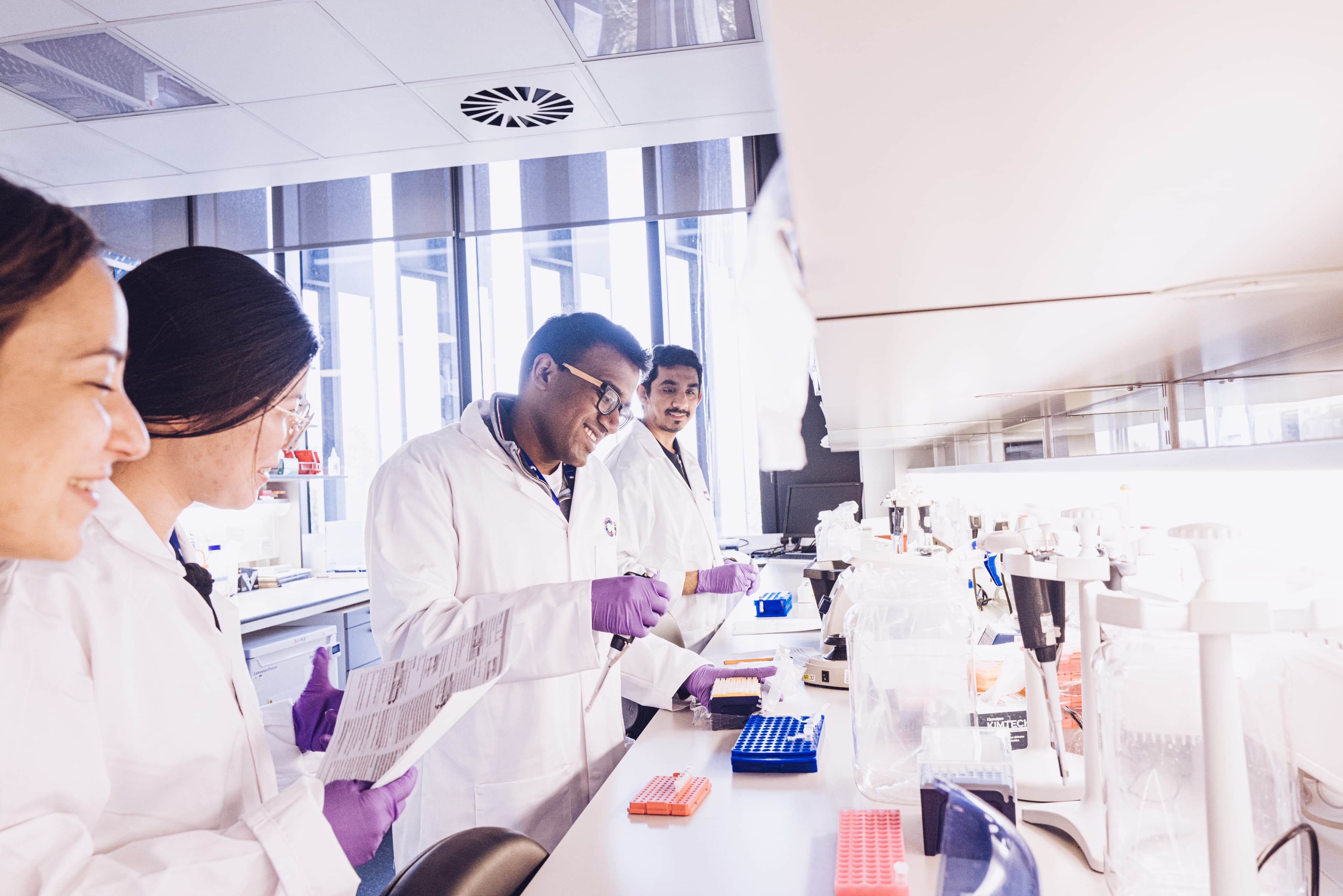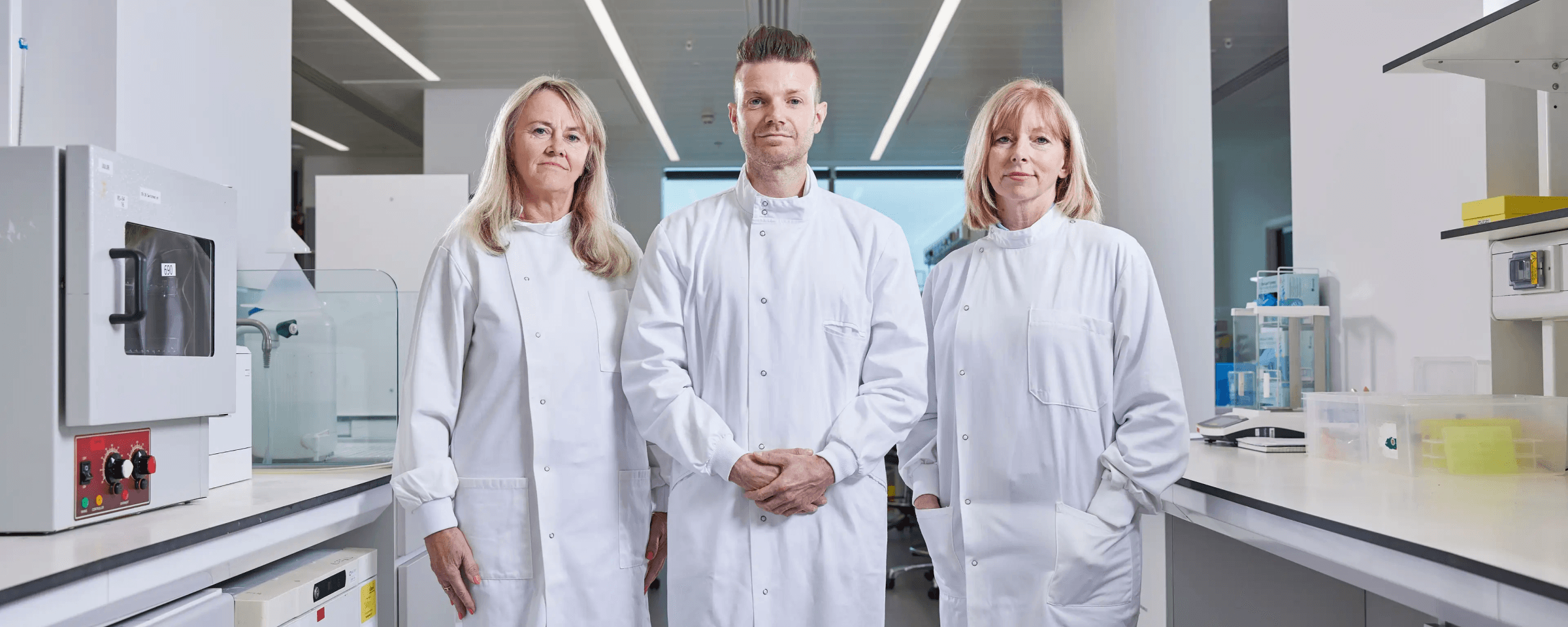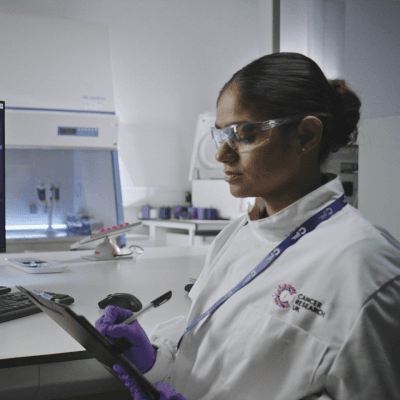
Cancer Research UK was formed more than 20 years ago, in 2002. However, our history goes back much further, to 1902, with the founding of the Imperial Cancer Research Fund. Thanks to supporters like you, our pioneering work into how to prevent, diagnose and treat cancer has benefitted millions of lives over the past 120 years. Find out more about how our research has already made a difference to patients and what we are funding right now.



We’re proud to partner with Channel 4 on Cancer Detectives: Finding the Cures – a powerful new documentary series that showcases pioneering research that could change everything, and the people behind it.

Every day, breakthroughs are saving lives. That’s the power of our science.

We've partnered with Goalhanger, Europe's largest independent podcast producer, on a new series where curiosity meets discovery. Listen to Hannah Fry and Michael Stevens exploring the wonders of science.
Over the last 40 years, cancer survival in the UK has doubled. In the 1970s just 1 in 4 people survived their disease for 10 years or more. Today 2 in 4 survive. Our ambition is to accelerate progress and see 3 in 4 patients surviving the disease by 2034.
Browse the latest news, analysis and opinion from Cancer Research UK.
Want to find more information about our research or cancer?